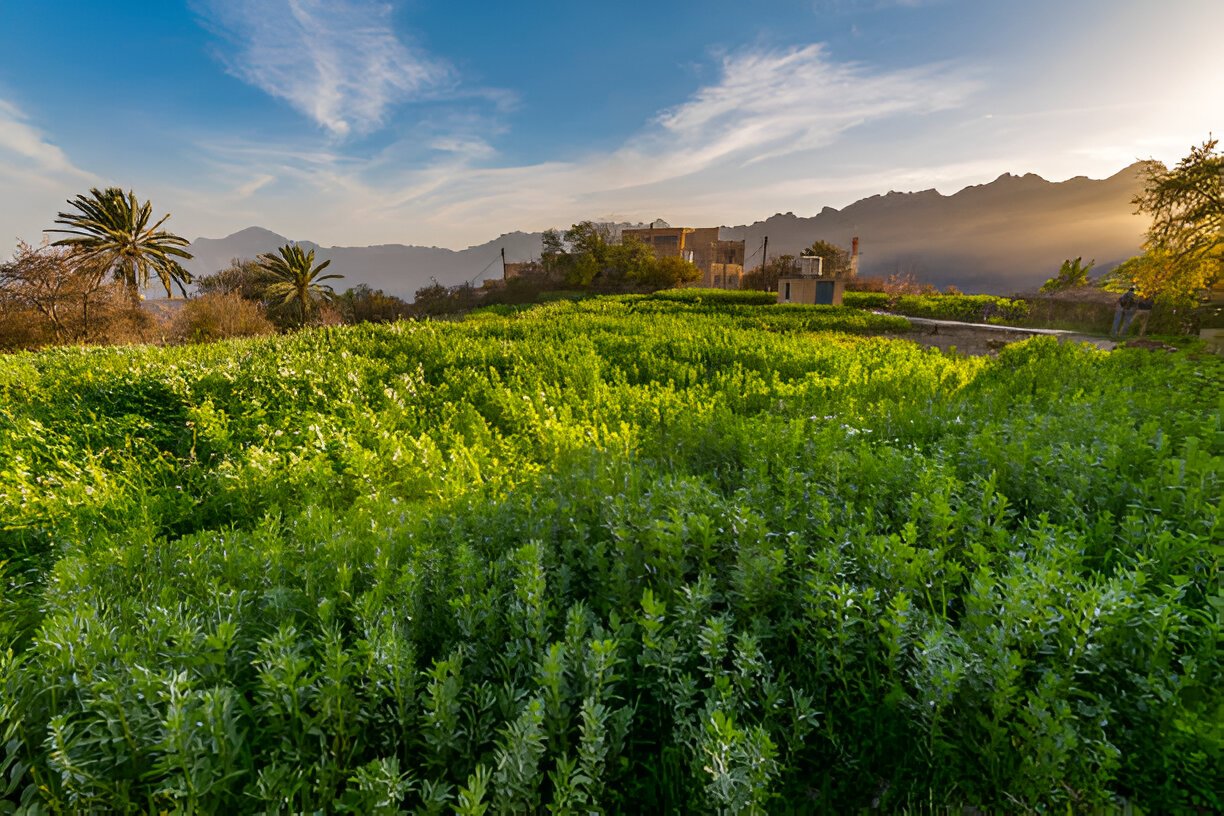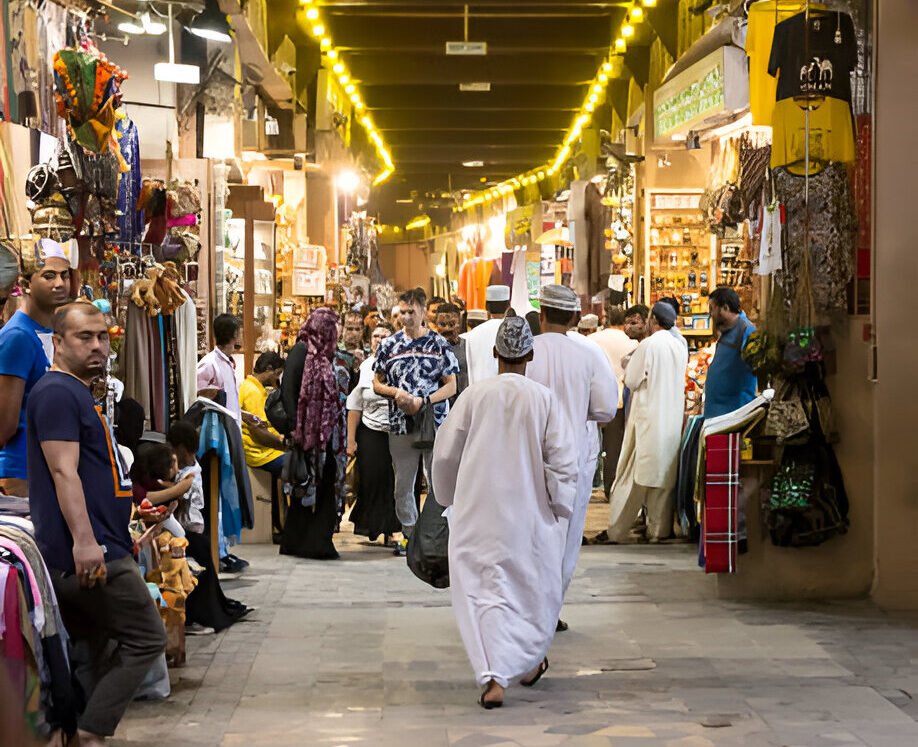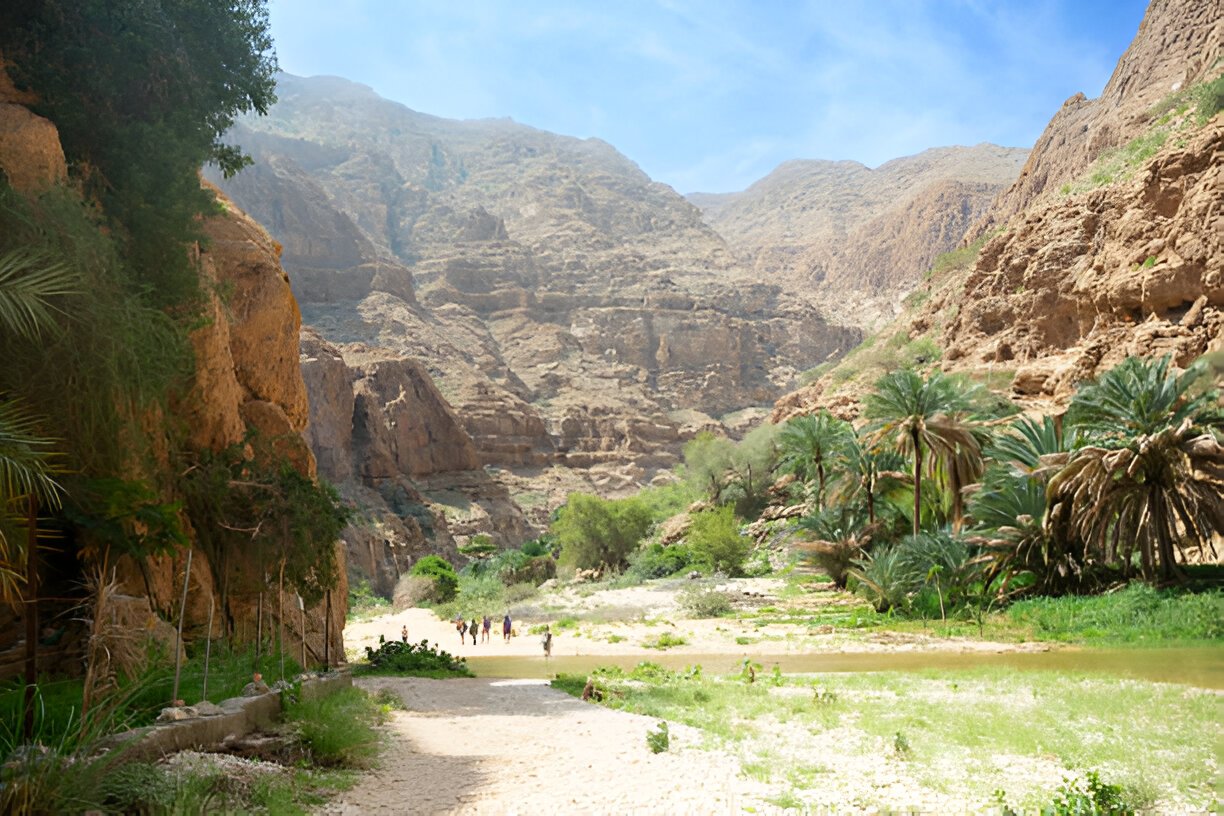
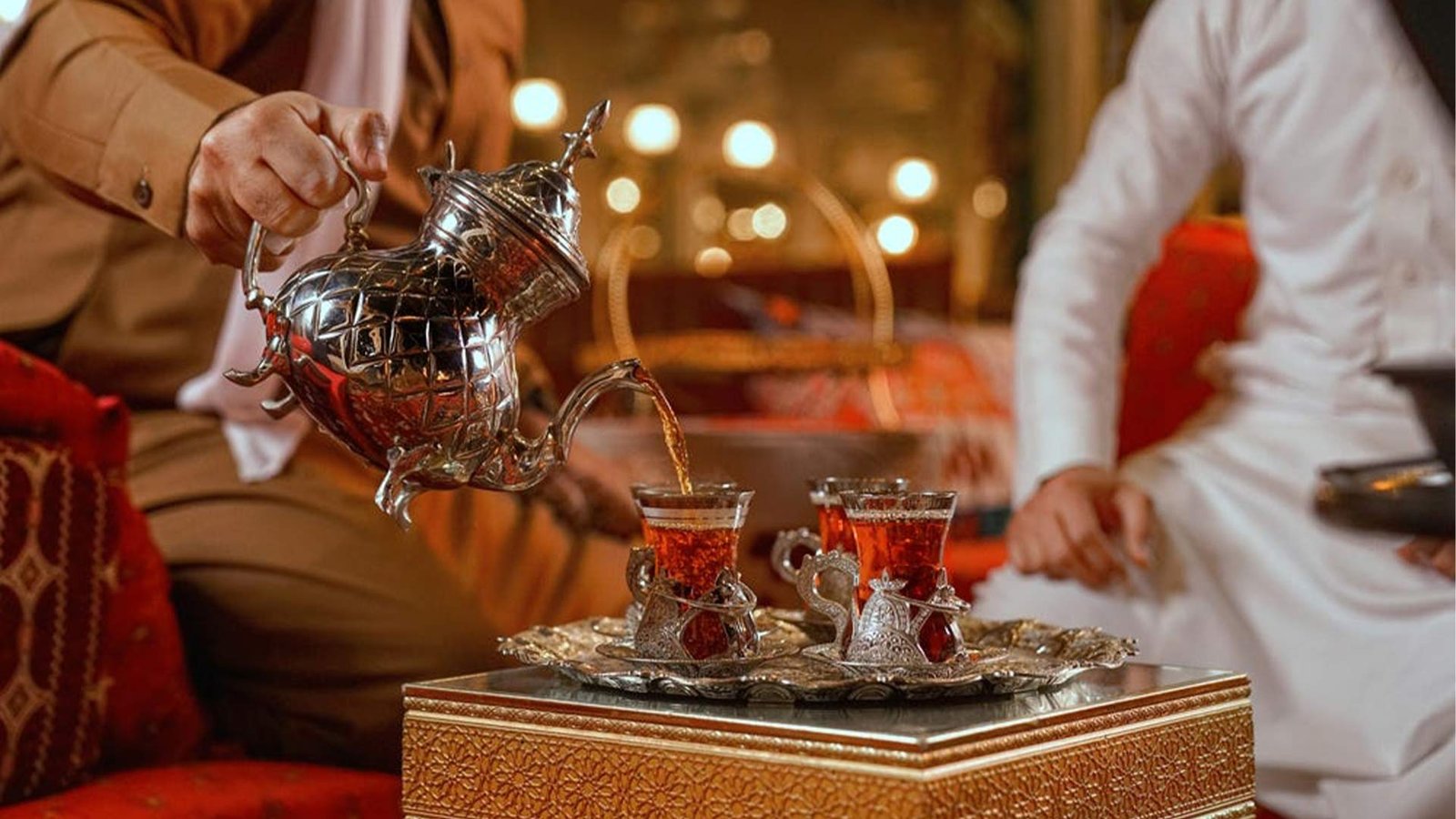
Oman, a country rich in history and culture, is celebrated for its deeply ingrained Omani hospitality traditions. These traditions are not merely customs but are an integral part of Omani life, reflecting the values of respect, generosity, and community. For centuries, Omani hospitality traditions have shaped the interactions between locals and visitors, making Oman a place where guests are welcomed with open arms and treated with unparalleled warmth.
This blog will explore the various aspects of Omani hospitality traditions, delving into their historical roots, the rituals that define them, and their relevance in modern Oman. As we journey through the cultural landscape of Oman, we will uncover how these traditions continue to thrive, adapting to contemporary life while retaining their timeless essence.
To truly appreciate the Omani hospitality traditions, it’s essential to understand their historical context. Oman’s strategic location along ancient trade routes made it a melting pot of cultures, where the exchange of goods was often accompanied by the exchange of ideas and customs. This unique cultural confluence contributed to the development of Omani hospitality traditions, where welcoming guests became a social norm and a symbol of status.
In Oman, hospitality is more than a gesture; it's a way of life, deeply rooted in our history and cultural values.
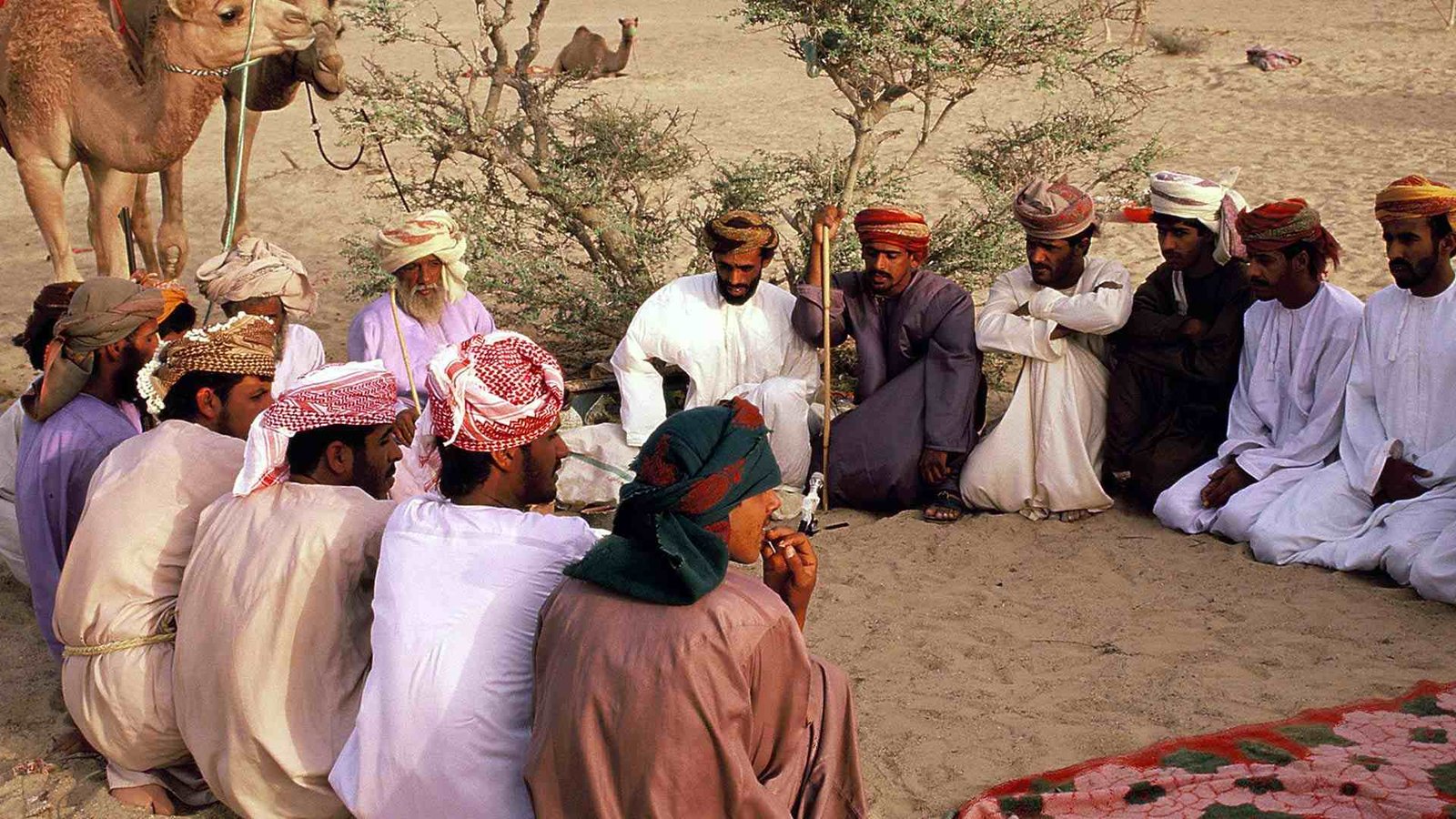
Islamic teachings have also played a significant role in shaping Omani hospitality traditions. The principles of charity, generosity, and respect for others, as taught by the Prophet Muhammad, are deeply embedded in the way Omanis treat their guests. In Oman, hospitality is viewed as a moral obligation, a reflection of one’s faith and adherence to Islamic values. This religious influence has ensured that Omani hospitality traditions are not just cultural practices but are also considered acts of worship.
The geography of Oman, with its vast deserts, rugged mountains, and long coastline, has also influenced the development of Omani hospitality traditions. In the past, Omanis often faced harsh environmental conditions, and mutual support was crucial for survival. This need for cooperation fostered a culture of hospitality that has endured to this day, where offering help to a traveler or a stranger is seen as both a duty and a privilege.
Omani hospitality traditions are characterized by a variety of rituals and practices that are observed with great care and respect. These traditions have been passed down through generations and continue to be a vital part of Omani culture.
One of the most important aspects of Omani hospitality traditions is how guests are greeted. Greetings in Oman are warm, and respectful, and often involve a series of polite inquiries about the guest’s health, family, and well-being. The phrase “Ahlan wa sahlan” (welcome) is commonly used, and it’s customary for the host to rise when greeting a guest, demonstrating respect and eagerness to serve.
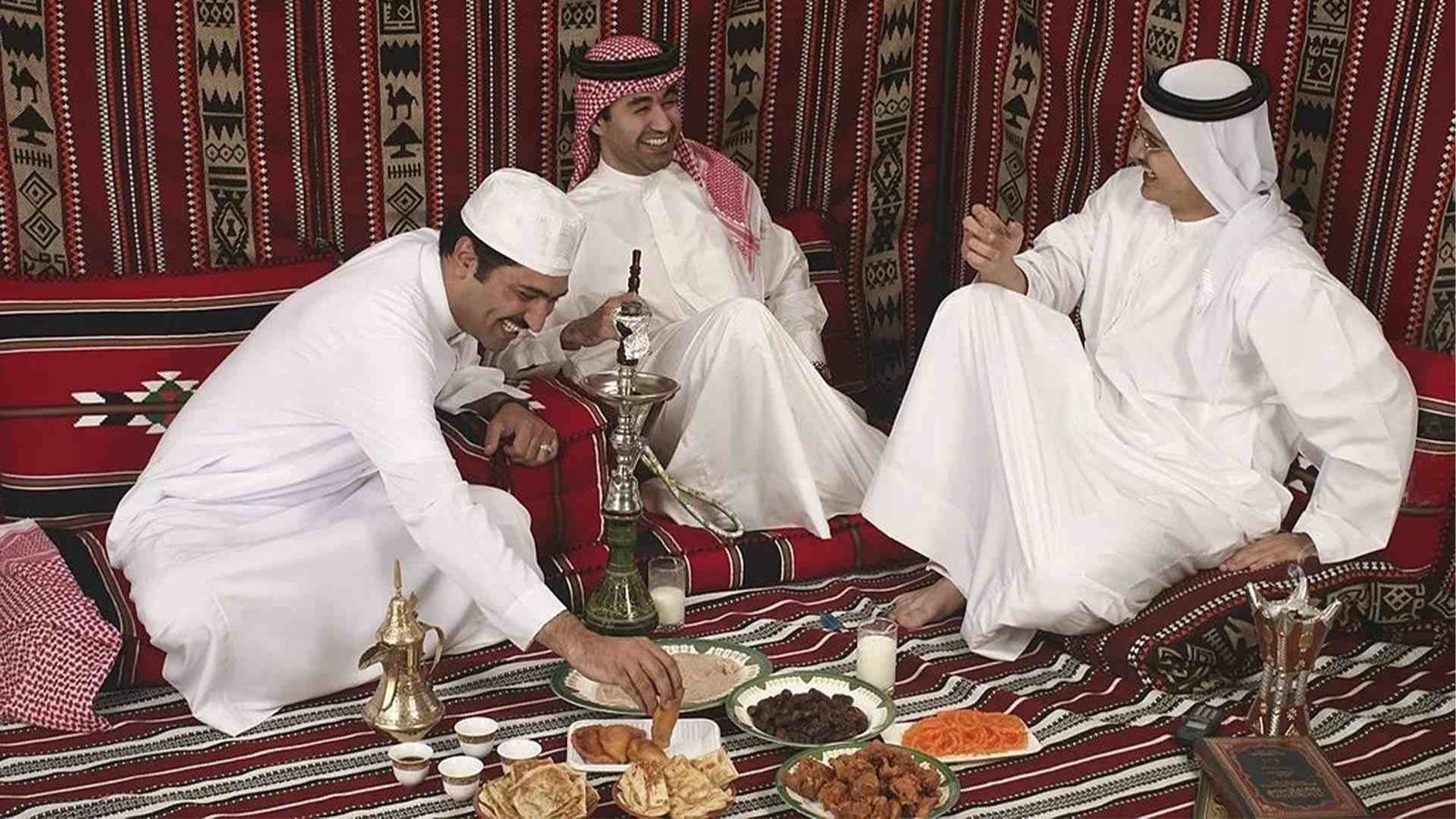
The Majlis, a traditional Omani sitting room, is a cornerstone of Omani hospitality traditions. It is specifically designed for receiving guests and is usually the most decorated and well-kept room in the house. The Majlis serves as a place for conversation, relaxation, and entertainment, where guests are offered refreshments and treated with the utmost care. The design and upkeep of the Majlis reflect the host’s respect for their visitors, making it a key element of Omani hospitality traditions.
The Majlis is more than just a room; it's a symbol of the respect and honor we extend to our guests.
One of the most recognizable Omani hospitality traditions is the serving of Omani coffee, known as qahwa, accompanied by dates. This tradition is more than just offering a beverage; it is a ritual that symbolizes welcome and friendship. The process of serving coffee is an art form, with specific customs around the order in which it is served and the number of cups offered. This ritual is deeply ingrained in Omani hospitality traditions, making it a hallmark of the cultural experience in Oman.
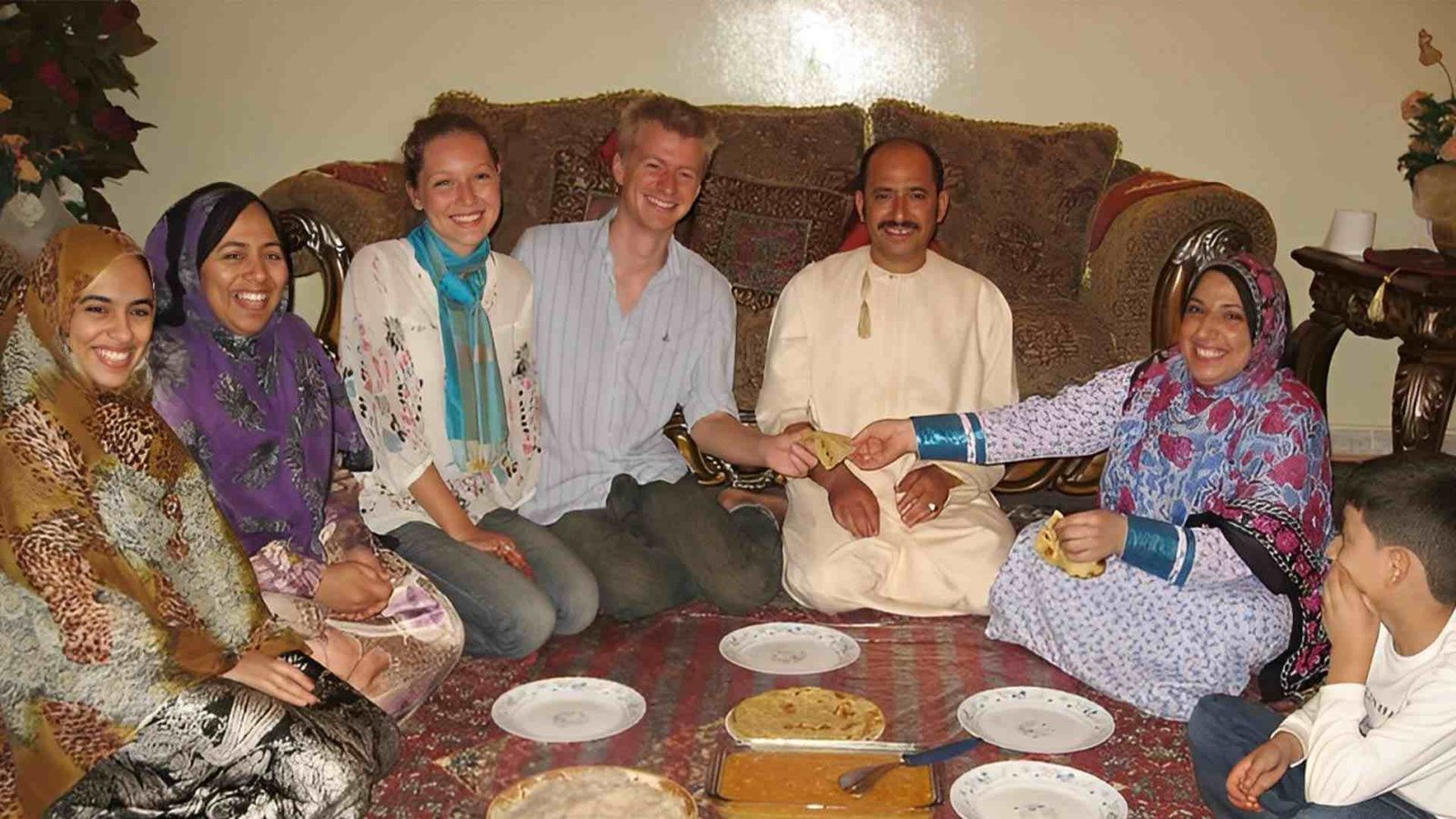
Storytelling and traditional music are also integral parts of Omani hospitality traditions. Omanis often entertain their guests with stories, poems, and songs that have been passed down through generations. These forms of entertainment not only serve to amuse the guests but also to share the cultural heritage of Oman, further deepening the connection between host and guest.
When we share our stories with our guests, we are sharing a part of our soul. It's how we connect, across cultures and generations.
Omani hospitality traditions are not just a set of rituals; they are a social institution that plays a vital role in the fabric of Omani society. The way one practices hospitality is often seen as a reflection of their character and moral values, making it a crucial aspect of social interactions in Oman.
In Oman, hospitality is closely linked to social status. The ability to host lavish gatherings and provide generously for guests is often seen as a sign of wealth and influence. Those who are able to do so are held in high regard within their communities, as Omani hospitality traditions dictate that the more generous the host, the higher their standing.
Hospitality also plays a key role in maintaining and strengthening family ties in Oman. Omani hospitality traditions dictate that family gatherings are occasions to demonstrate generosity and respect for one another, with the sharing of food and drink being central to these events. In many ways, these traditions help to reinforce the bonds between family members, ensuring that relationships remain strong and cohesive.
Omani hospitality traditions are particularly evident during festivals and religious practices, such as Eid al-Fitr and Eid al-Adha. During these important occasions, Omani families open their homes to friends, relatives, and even strangers, offering them food and drink in a spirit of celebration and goodwill. The tradition of communal feasting during Eid is a reflection of the broader cultural importance of hospitality in Oman.
As Oman continues to modernize, Omani hospitality traditions face new challenges. The rapid pace of urbanization, the influence of Western culture, and the demands of modern life have led to changes in the way hospitality is practiced.
In urban areas, the traditional forms of Omani hospitality traditions are sometimes replaced by more informal and less structured interactions. The close-knit communities that once defined Omani society are becoming more dispersed, making it harder to maintain the same level of hospitality. Despite these changes, many Omanis continue to uphold their hospitality traditions, ensuring that the spirit of generosity and respect remains a core part of their cultural identity.
The influx of Western culture and values has also impacted Omani hospitality traditions. While the core principles remain strong, there is a growing tension between preserving traditional customs and adapting to new ways of life. For example, the practice of hosting guests in the Majlis has evolved, with some urban families opting for more modern forms of entertainment. However, the essence of hospitality—showing respect and generosity to guests—remains unchanged.
Oman is at a crossroads where tradition meets modernity. Our challenge is to keep our hospitality traditions alive while embracing the future.
The growth of tourism in Oman has led to the commercialization of certain Omani hospitality traditions. Hotels, resorts, and restaurants have incorporated elements of traditional hospitality into their services, offering visitors a taste of Omani culture. While this has helped to promote Oman’s unique heritage on a global scale, there is also a risk that the commercialization of these traditions may dilute their authenticity.
As Oman continues to modernize, the future of Omani hospitality traditions will depend on the ability of the Omani people to balance tradition with innovation. While challenges such as urbanization and Western influence pose potential threats to these traditions, they also present opportunities for growth and adaptation.
By embracing modernity while staying true to their cultural roots, Omanis can ensure that their hospitality traditions remain a vibrant and integral part of their national identity. The continued promotion of these traditions, both within Oman and on the global stage, will be crucial in preserving the rich cultural heritage of this Arabian gem.
The Omani hospitality traditions are a testament to the values of generosity, respect, and community that are central to Omani culture. These traditions, rooted in the country’s history and geography, have evolved over time but have remained a defining characteristic of the Omani people. In a world that is increasingly fast-paced and individualistic, the enduring legacy of Omani hospitality serves as a reminder of the importance of kindness, generosity, and human connection.
As Oman continues to modernize and engage with the global community, the challenge will be to preserve these traditions while adapting to the demands of a changing world. The future of Omani hospitality traditions will depend on the ability of the Omani people to balance tradition with innovation, ensuring that the spirit of hospitality remains alive for generations to come.
The legacy of Omani hospitality is not just in its past, but in its ability to adapt and thrive in the future.
The Omani hospitality traditions are more than just customs; they are a living legacy, a testament to a people deeply rooted in their traditions yet open to the world. As we look to the future, these traditions will continue to play a crucial role in shaping Oman’s identity and fostering meaningful connections between its people and the global community.
Never miss any important news. Subscribe to our newsletter.

